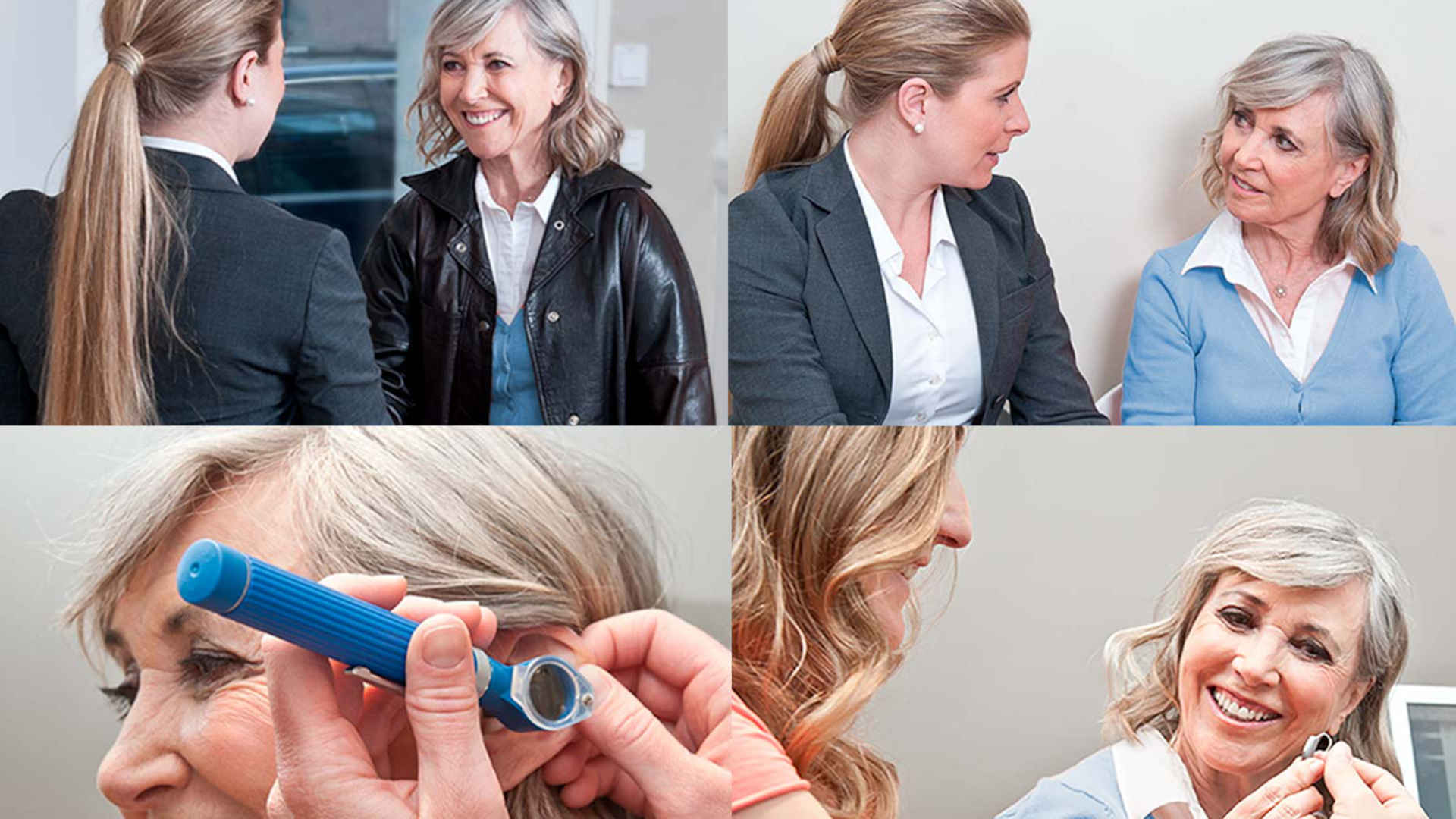
What to expect at your first consultation with a hearing specialist
It takes time to get used to the idea of wearing hearing aids. Maybe you’ve been to the doctor’s, learned about hearing loss online and talked to friends and family about your hearing loss. Now it’s time to make an appointment with a hearing specialist. What can you expect from that first appointment? We’ll take you through your appointment, step by step.
Created Updated
Hearing aids
Hearing loss
Science
You've made an appointment with a hearing specialist - good for you! Now here's what will happen when you visit the hearing expert.
The initial talk
When you show up for your appointment, the first thing you'll do (after introductions) is to have a chat about why you are there, how you are experiencing your hearing loss, and how friends and family may experience it.
It's important for the hearing specialist to understand your daily life and needs, so they can find the best hearing aid for you. Not only is your hearing loss unique, but so are you and the way you live your life. Maybe you're a busy person who experiences different sound environments every day. Or maybe most of your day is mostly calm and quiet. These are two very different lives that might benefit from different hearing solutions.
It's a good idea to bring someone close to you to the appointment so they can support you and offer their perspective on your hearing loss. And, of course, help you remember all the details!
The hearing test
Now you'll do the hearing test, also called the pure tone test. The hearing specialist will measure how well you hear sounds and speech, and try to find the softest sound level you can detect for a range of frequencies. This will give them a picture of your hearing loss in each ear and map how you hear the sounds that are most important in your daily life.
The hearing test is usually performed in a soundproof room or booth with earphones, testing one ear at a time at different volumes and frequencies. All you have to do is respond when you can hear the sound - for instance by pressing a button. Later you'll get the results explained to you in an audiogram. The test doesn't take long, and it doesn't hurt!
Take an online hearing test here >>
The speech test
A speech test is not necessarily something you'll have to do. If you're asked to do one, you'll put on earphones and repeat words and sentences for as long as you can hear them. You may also be asked to repeat them as softly as you can hear them. In the end the sounds will be so soft that you won't be able to hear them.
The audiogram
After the testing you'll get to see your audiogram! An audiogram is a complete mapping of your sense of hearing on both ears. It gives a detailed description and shows how soft a sound can get before it's inaudible to you. A hearing threshold of between 0 and 25 dB is considered normal.
The audiogram helps determine the severity of your hearing loss. The hearing specialist will explain the details to you - remember to ask again if there's something you don't understand.
The full picture
The hearing specialist may introduce other hearing loss tests that we haven't mentioned here. Based on all of this, the hearing specialist now has an overview of your hearing loss. You'll learn how your hearing is in both ears and how well each of them can hear low pitch and high pitch.
Based on the tests, the hearing care professional will suggest the best hearing solution for your unique hearing loss, your budget and your daily life.
The next steps
Once you and your hearing specialist have decided on a hearing aid, you'll get your first hearing aid fitting. The hearing specialist will calibrate the hearing aid to fit your hearing loss and show you how to use it and clean it. They will also show you how to put it on correctly. Now you'll have a few weeks to try out the hearing aid in real life and return for a fine-tuning.
Generally, people are happy with their hearing aids after two or three fine-tunings. If you're still experiencing issues with them after that, your hearing specialist will help you find a better hearing solution for you.
DOWNLOAD THE FREE EBOOKLET"WHAT IS A HEARING AID?"
We just need a few details from you.
